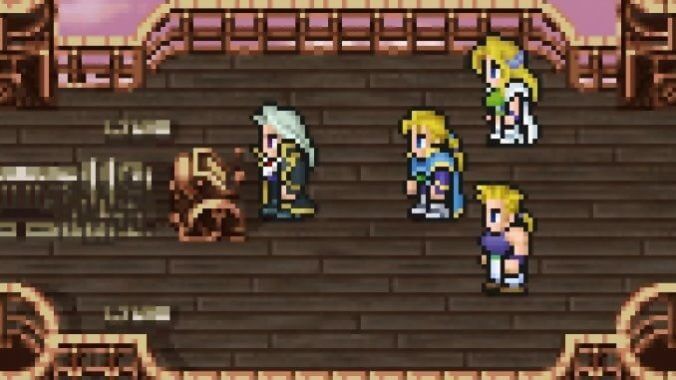Final Fantasy VI Is a Game for Losers

TW: This piece discusses suicide. If you are uncomfortable with that topic it may be best to avoid.
When Final Fantasy VI was released 30 years ago this week, it didn’t become the cultural hit that its successor became. It was a massive success among fans and critics alike. In it we saw the first Tetsuya Nomura character designs before he went on to be lead designer on Final Fantasy VII, Yoshitaka Amano’s last run as lead designer after working on the first six games, and a fond farewell to the Nintendo era of Final Fantasy. It is one of my favorite games of the series, and while I’ll do my best to talk about it, nostalgia can be a blinder to objectivity. I may fail, but that’s okay because this is very much a game about failure.
While every Final Fantasy game finds a ragtag group of adventurers band together and kill god, there is something so uniquely flawed about the cast of Final Fantasy VI. These aren’t carefree explorers or newcomers in a strange world. They aren’t students or destined to be king or chosen by magic crystals to become warriors of light. Instead, they are a group of people who have already lost. Whether by their own mistakes or circumstance, each character has failed in some large way before the game even begins: Cyan’s family dies before he’s playable, Terra is a brainwashed amnesiac forced to work for the empire, Celes isn’t even brainwashed and still works for the empire. The list goes on, with Locke causing his girlfriend’s amnesia and subsequent death, Sabin’s total abdication of responsibility forcing Edgar to be king, and Shadow’s abandonment of his partner and daughter. In this 14 character cast, you’d be hard pressed to find a single character, besides maybe Gogo and Umaro, who comes to the story without first experiencing some massive, life-altering personal loss, most of which they are directly responsible for. What’s more is that at the game’s act one climax, with the party formed and friendship on their side, they lose. United, they fail to stop Kefka’s plans. They’re beaten and thrown to the wind.
Final Fantasy VI strives to be a game without a main character, where any member of its massive party could walk through town or across the world map, where everyone is given a personal arc separate from the central plot of the game. I don’t think it succeeds in this. Terra is and will always be the protagonist of the main plot, but at the start of The World of Ruin, the game’s second half, the weight of the narrative is passed over to Celes. Celes was raised by the empire, experimented on, and lied to by them until she eventually breaks free and joins our party. She is my favorite character in this game. In the World of Ruin we find her on a small island under Cid’s care. Cid is her de facto grandfather. When she’s well enough to stand, it becomes her turn to take care of him. The player must bring Cid fresh fish to return his strength, but it’s very likely that they will fail. Cid will die. Celes will find herself alone. This triggers a scene that devastated me on my first playthrough. Celes, having lost everything, now alone on a small island, gives up. She leaps from a high cliff attempting to end this struggle once and for all… but again, she fails. She washes up on shore feeling defeated, not even successful in taking her own life.